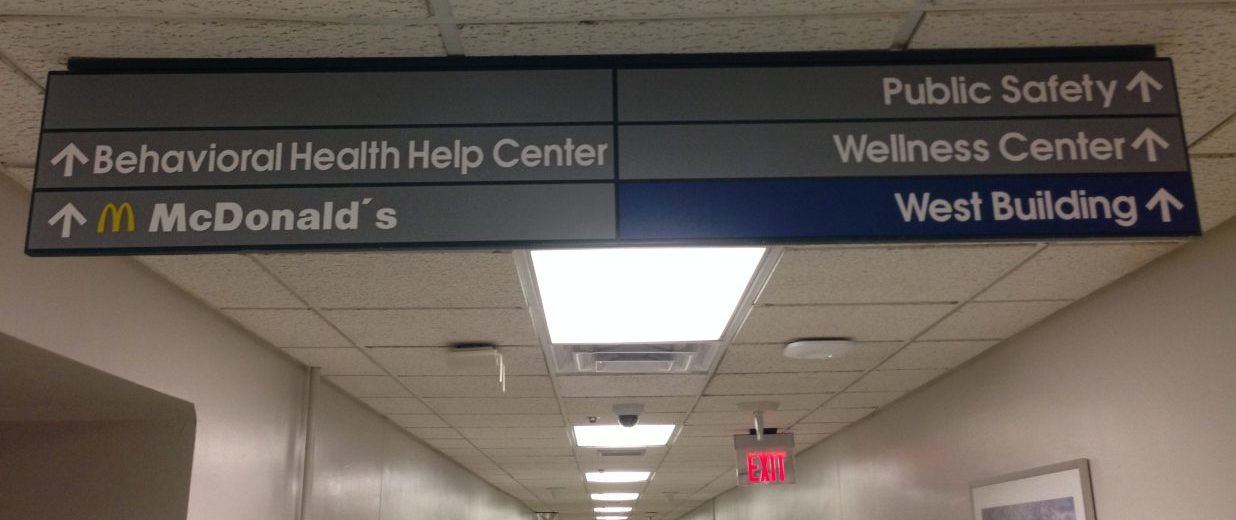By Anna Lappé, The Guardian
My first daughter was born at 12:49am on a hot night in July after 35 hours of labour. She and I experienced several minutes of heartfelt awe. Then, we both promptly fell fast asleep. The next morning, I awoke in a West Village hospital bed, famished. The tray that sat in front of me included something that slightly resembled oatmeal, bright-red Jello, “orange juice”, and black coffee paired with a packet of sugar and non-dairy creamer. Having just experienced the most gruelling 48 hours of my life, this tray wasn’t exactly giving me what I needed, to put it mildly.
Flash-forward three years and one more daughter later and I’m spending four nights with our infant daughter in the pediatric intensive care unit at UCSF Medical Center. On the menu is organic plain whole milk yoghurt, fresh fruit, organic apple sauce, and wholegrain locally made bread. In the cafeteria downstairs is a salad bar stocked with fresh vegetables. And in the corridor of the hospital wing across the street is a farmers market filled with persimmons, apples, and much more from local growers.
All across the country, hospitals like this one in San Francisco are rethinking what’s on its menu and in the cafeterias. Prompted by skyrocketing rates of diet-related illnesses and with ever greater understanding of the role of good nutrition, public health professionals are starting to get serious about food.
In the past few months, hospitals are even stepping up to tell junk food purveyors to leave the premises. In January 2013, Truman Medical Centers in Kansas City, Missouri announced it was ending its lease with a McDonald’s in its facility. The hospital CEO said that having a McDonald’s right next to its revamped, healthier cafeteria, sends an “inconsistent message.”
You’d think getting big macs out of hospitals would be easy, but fast-food chains often require decades-long leases when they locate in a hospital. While Truman Medical Centers wouldn’t disclose the deal it made with McDonald’s, it did say it had to negotiate to end the lease early.
Corporate Accountability International (CAI), a non-profit organisation I partner with at Food MythBusters, has been supporting public health officials who want to get McDonald’s and other fast food establishments out of their hospitals. Lurie Children’s Hospital in Chicago, Parkland Health and Hospital System in Dallas, Vanderbilt Medical Center, and Children’s Hospital of Philadelphia have all been successful in removing McDonald’s food and marketing from their hospitals. CAI’s Sara Deon, the director of the “value [the] meal” campaign, expects many more will follow suit.
Fast food chains aren’t the only ones getting the boot. Deon says hospitals are looking at ways to remove soda and other sugared beverages from their campuses, too, and think more holistically about how food service is a key part of patient health. To date, hundreds of hospitals and food service contractors have signed Health Care Without Harm’s pledge to “demonstrate their commitment to ‘first, do no harm’ and treat food and its production and distribution as preventive medicine.”
And in California, the Community Alliance with Family Farmers (CAFF) is working intensively with seven hospital groups to purchase food from local, sustainable growers. Ariane Michas who is leading the effort at CAFF says, “hospitals have an extraordinary opportunity to affect their local food systems. By pooling their purchasing power, they can throw their collective weight behind good, fresh, healthy, fair food and the farmers who grow it. In doing so, they model healthy habits for their patients, provide a better dining experience, and preserve our environment.” According to Michas CAFF has already helped hospitals source more than 7,000 pounds of organic strawberries, 800 pounds of green beans, 1,200 pounds of fruit, and other fresh produce from five different local farmers.
Jack Henderson, associate director of nutrition and food services at UCSF, and one of the partners working with Michas, explains, “We are here to not only give people good, clean, and honestly produced food but also to set an example for them about making the right food choices after they leave our care.”
Transforming hospital food, and connecting good food with patient health, is a movement that’s expanding across the United States. And patients, like me and my daughter, are the better for it. Of course, this change won’t happen overnight. But have no doubt it’s happening. I’m confident that years from now, maybe even when I visit my first grandchild in the hospital, my daughters will be offered sustenance more nourishing than Jello.
Originally published in The Guardian
Photo by Anne Paddock




